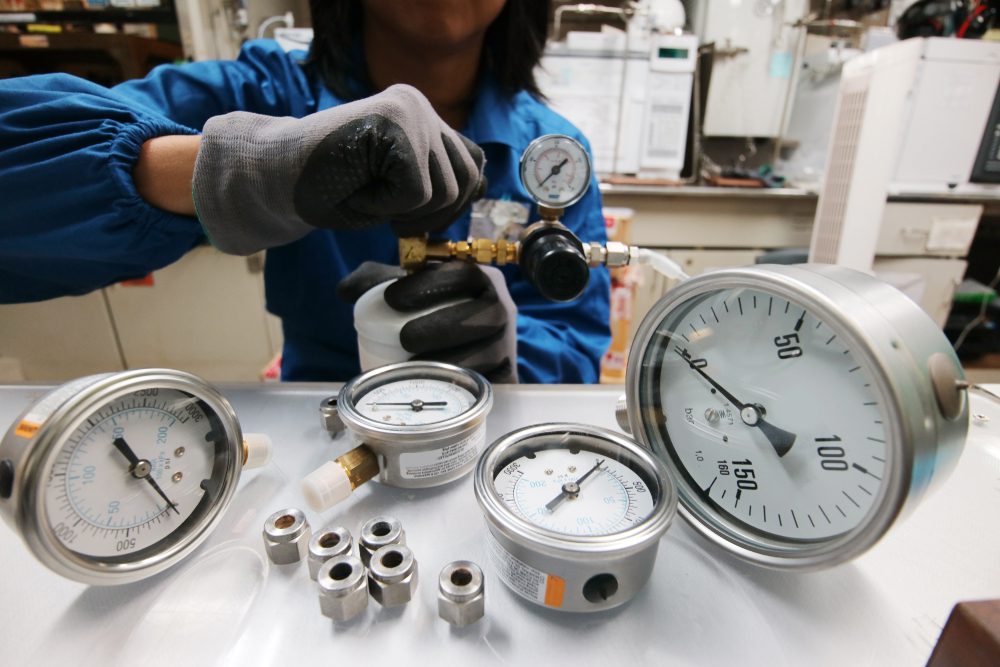
Pressure gauge calibration is an essential part of maintenance to ensure the equipment works as intended and the readings remain accurate. If overlooked, it could lead to potential problems such as safety issues, penalties, and low-quality products. In this post, we will look at how pressure gauge calibration works and how often it should occur.
Pressure Gauge Calibration
Let’s first go over what pressure gauge calibration is. It’s the process of testing and comparing the pressure gauge to an established reference to make sure it’s working and giving accurate readings. There are two main calibration methods for pressure gauges: the hydraulic test pump and a pressure deadweight tester.
The pressure deadweight tester uses weights as a calibration mechanism. This method is best used when you’re looking for more precise pressure gauge accuracy. Whereas, the hydraulic test pump uses either a gas or liquid to apply pressure to the pressure gauge and a digital reference gauge at the same time. Once complete, the technician will compare both readings to ensure they match.
Regardless of the method calibration method used, the test needs to be carried out by experienced professionals with certified equipment to ensure the calibration is carried out correctly.
How Often Should Calibration Occur?
There’s no single answer since there are many factors that can affect the accuracy of a pressure gauge. Most experts recommend calibrating pressure gauges at least every 12 months or once a year. However, here are some common reasons why pressure gauge calibration needs to occur more often:
Damage or an Unforeseen Event
Sometimes, an unexpected event such as damage occurring, excessive vibrations, or a shock to the gauge could throw off the readings. In this case, it’s best to send it out for calibration as soon as possible.
Manufacturer’s Recommendation
The manufacturer of the pressure gauge has its own standard for how often the gauge should be calibrated. It’s best to follow their recommendations to avoid any issues. You can find their recommendation in the manual, on the manufacturer’s website, or by contacting them directly.
Environmental Factors
Finally, the environment where the gauge is used will affect how often the pressure gauge needs to be calibrated. Weather conditions and humidity levels are two examples of environmental factors that need to be considered.
Mid-West Instrument
For over 60 years, Mid-West Instrument has been a leading manufacturer of differential pressure gauges and equipment. Contact us today to speak with one of your friendly experts if you have calibration questions or concerns, and we’ll be glad to assist.

